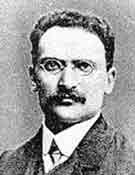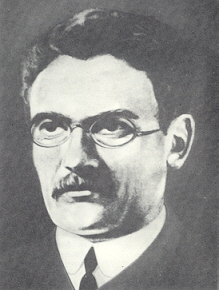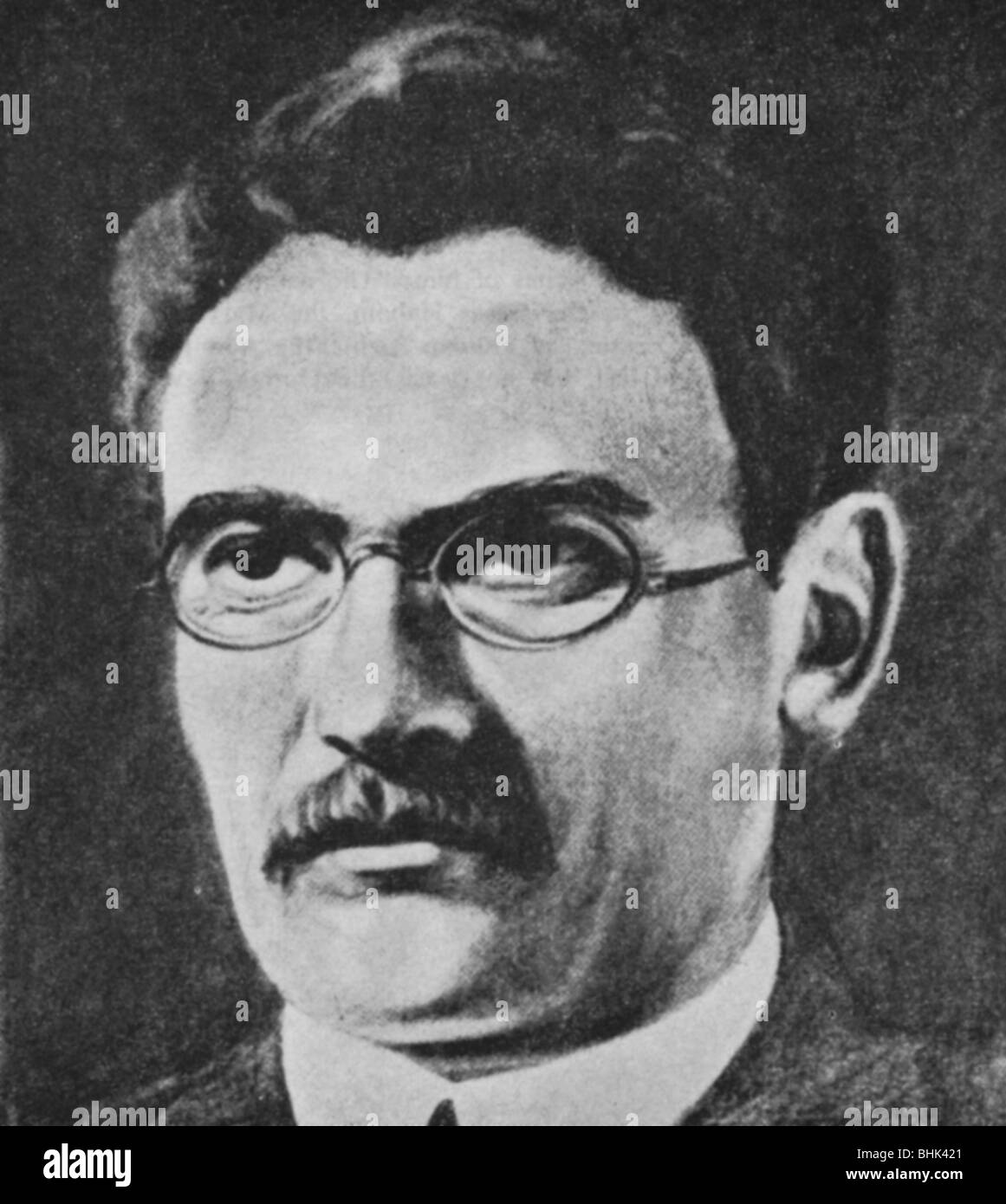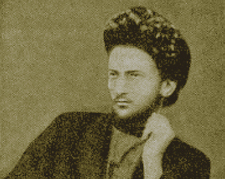Ber Borochov
Ber Borochov (also: Bear Borochov, Dow or Dov Beer Borochov, born July 4, 1881 in Zolotonosha, then Russian Empire, † December 17, 1917 in Kiev ) was a socialist and Zionist thinkers of the Jewish labor movement and co-founder of the World Federation of Poale Zion, the Jewish workers' party within the Zionist movement. In addition, he was one of the first Yiddish linguists.
He attended a Russian school and enthusiastic about the socialist ideas of his time. He also had, like most Jewish high school graduates no opportunity to study at a Russian university and was therefore a self-taught in many areas. He spoke several languages. In 1901 he founded the Zionist Socialist Workers' Union in Russia.
While the debate about the question of what field the Jewish state was to be founded, the British Uganda Program was presented. Borochov concurred with the opinion of Menachem Ussishkins, who refused any other territory than Palestine. On the seventh Zionist Congress in 1905, he managed the part of the Poalei Zion delegates who spoke out against Uganda. On the eighth Congress, two years later, he promoted the withdrawal of Russian Poale Zion from the Zionist Organization. From now on until the outbreak of World War I campaigned Borochov in Central and Western Europe to the objectives of Poale Zion World Union.
In 1914 Borochov in the U.S. and was spokesman for the American Poale Zion, the World Jewish Congress and the American Jewish Congress. He was also the Yiddish newspaper Di Warheit (New York) out. Before the October Revolution, he returned to Russia. In 1917, he campaigned for the establishment of Palestinian settlements by the Socialist model.
He died during a lecture tour in Kiev. In 1963 his remains were interred in the cemetery of Kibbutz Kinneret along with the other founders of Socialist Zionism.
Ber Borochov was a prolific writer and recognized analyst. His work covers a wide variety of topics about Jewish history, economy, language, culture, politics, etc. As a key theoretical contribution we see the made possible with him Synthesis of class struggle and nationalism at a time when Marxism rejected all nationalism, especially Jewish.
He also contributed to the Russian Jewish Encyclopedia and prepared a Yiddish bibliography.
Work ( and others)
- Socialism and Zionism. Vienna. Verl future ( " The Jewish workers "). 1932
- Class and Nation: the theory and practice d Jewish socialism. Berlin. Hechaluz. 1932
- On the question of Zion, and the area in 1905; Hebrew: Tel Aviv, 1955










